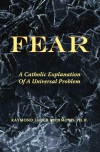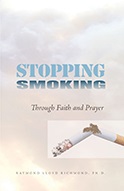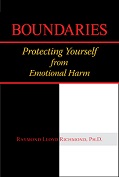
I am
. . . single and a practising Catholic. . . . I
have been in this job for about 5 years. I have for some time realized I
have significant problems with anger. I have also been battling compulsive
sexual disorders for some time (pornography, masturbation, etc.)—there
is no need to educating me on the moral status of such behaviours. I know
they are gravely disordered, and I have been availing myself of the
Church’s sacraments for some time to remedy this issue. Thanks be to
God I am seeing some tangible improvement in this area. I would like to eradicate
it entirely but I know full well that such behaviours (which go back to early
childhood) are not erased overnight.
In the
context of spiritual and psychological healing I would like to give you all
the relevant information so you can make a better assessment of the situation.
I understand there are limitations to what you can provide over email, especially
when this is not a face to face meeting. I am already seeing a very good
Catholic psychologist and we are working on these areas. However I have been
struck by the frank honesty of your articles, which to be honest angered
in some way. I realise on an intuitive level I was angered because it revealed
a truth about myself that I have been unable and/or unwilling to face until
now. I hope that your wisdom in the matter can supplement the help I am already
receiving.
To start
from the beginning, I was subjected to significant bullying at school. There
was one individual in particular that tormented me, both physically and
psychologically. There occurred over a number of years during boarding school.
I had brought this to the attention of the school authorities on a number
of occasions but there was very little done. Eventually the frustration
manifested itself upon one of his gang, who I attacked on at least two occasions
after provocation. I never had the courage to attack the main ringleader
directly—I was in too much fear of him. The end of high school thankfully
brought this chapter to a close. Since this time I have since learned that
the main individual took his own live. It is clear that he had significant
problems, and I for whatever reason was his favourite target.
Unfortunately
at this time I had developed a of masturbation, which in retrospect could
have been a crutch or defence mechanism. Due to the deplorable state of religious
teaching in the Church (which I am sure you are aware of) I did not know
what a mortal sin was. This discovery happened at University college which
by this time I had now become immersed in other problems (pornography). These
two behaviours have been continuing up until this day, and has had terrible
consequences on relationships with the other sex. It was only after the breakdown
of my relationship with my then girlfriend (one of many) and my descent into
clinical depression, that I better realized the full damage that these sins
were causing. About this time I began to see the psychologist. I now understand
how widespread such problems are in the world at this time.
Coming
to the issue of anger, I have struggled with temper for some years now. It
has recently become acute due to particular personalities in my workplace.
There have been three particular individuals at my workplace who I believe
exhibit behaviour consistent with personality disorders, or at worst are
sociopathic. For some time now (around 12 months) I have been under great
stress trying to provide . . . support to these people who are
very rarely happy and are quick to complain, and quick to exaggerate
. . . issues. I have reported two of them for their behaviour in
the past. I am now at the point of being consumed with rage and taking pleasure
in sadistic vengeance upon these people who seem to be hell-bent on making
other people’s lives a misery. I see in these people the same behaviour
as the school bully. In my defense all three people have had complaints leveled
against them by staff. . . . The most troublesome one has issues
going back almost 10 years ago, long before I arrived on the
scene.
I realise
that this brooding and pent-up anger is destroying me inside, and I realise
that if I do not fix things it could have serious consequences.
I would
like to keep my questions very simple: What advise can you give about dealing
with such people in the workplace? What mental/spiritual exercises can you
suggest for healing and letting go of this desire for vengeance and the sense
of hurt?
 here is already much information
about anger—especially anger resulting from the lack of a father and
its relation to pornography and masturbation—available on this website;
with all of this
information [1]
in the background, let me here explain that your approach to those difficult
individuals at work amounts not just to conscious revenge but also to a form
of unconscious revenge. here is already much information
about anger—especially anger resulting from the lack of a father and
its relation to pornography and masturbation—available on this website;
with all of this
information [1]
in the background, let me here explain that your approach to those difficult
individuals at work amounts not just to conscious revenge but also to a form
of unconscious revenge.
Unconscious
Revenge
Any impulse to revenge is quite
natural in that it results from our (fallen) human nature, a nature that,
having lost the guidance of the beatific vision,
blindly pursues its own desires of self-preservation
and self-advancement, even at the expense of others. Often, the others we
try to hurt have a clear and direct responsibility for the injuries that
have been inflicted on us. But we can just as well get a taste of revenge
by hurting even innocent persons; in fact, this is what happens in
bullying—and this is what characterizes unconscious revenge.
The Motivation
for Bullying
Consider what motivates a bully.
In his own home, a child is physically abused, emotionally tormented, or
both. He feels helpless and insecure. So he seeks out other children less
powerful than him to bully; in doing so, he compensates for his fundamental
insecurity by generating a feeling of confidence through his wielding power
over others. Psychologically, it doesn’t matter to him that an unfair
advantage over others weaker than himself makes his power unscrupulous; all
that matters is the feeling of satisfaction in
triumph.
But is the bully really angry
with the innocent children he torments? Well, no, clearly, because he literally
has to go looking for trouble. So where is source of the bully’s real
anger? It goes back to his home—usually
to his father in particular—where he has been
tormented. Thus the bully takes out his anger at his father indirectly; he
can’t attack his father directly because his father is too psychologically
dangerous, so he attacks others who are psychologically safer
targets.
An Absent
Father
Now, you suffered greatly from
being one of those targets. You experienced considerable anger at those who
bullied you. You even retaliated at one of the weaker bullies. Still,
that’s not the whole story. Your own anger did not begin in school with
bullying.
Why were you in boarding school?
Where was your father? Was he ever there when you needed him? You don’t
mention him in your message, and so, in your making him “missing”
in your message you unwittingly describe his real place in your life:
missing.
Because your father was
missing—because of his failures—because of what you lacked because
of his lack—because of how he cheated you of guidance and
protection—you experience considerable anger at him. You may be aware
of some of this anger, but other aspects remain unconscious. Let’s see
how this plays out.
You complain primarily of your
anger at your co-workers. But, in spite of the fact that their behavior has
been provocative, your anger at them can be tracked back through them to
your anger at having been bullied in school; that is, those bullying experiences
amplify your current anger at your co-workers. Furthermore, the anger from
those bullying experiences can be tracked back beyond school to your anger
at your father’s failures which amplified your anger at those bullying
experiences.
In the end, it all comes back
to your father, and so to resolve the problems with your co-workers it will
be necessary to bring the anger at your father to the forefront.
To do this, begin by remembering
that you say you are a practicing Catholic.
Do You Really
Love Christ?
You say you are a practicing
Catholic. Well, do you really love Christ? Do you really love Him from the
depths of your heart? If you do, then remember His own words: “If you
love me, you will keep my commandments” (John 14:15). And what did He
command us to do in regard to those who irritate us? “But to you who
hear, I say, love your enemies, do good to those who hate you, bless those
who curse you, pray for those who mistreat you” (Luke
6:27–28).
Most likely, your father did
not teach you, through his own behavior, and from the depths of his heart,
to act in this way. So remember that. And then, for the love of Christ, keep
His commandments. When your co-workers try to make your life misery, bless
them. Go out of your way to be patient and
kind and to give them the explanations they need. Pray for them. Essentially,
do for them what your father failed to do for you.
Moreover, keep in mind three
things here.
Affirming
Feelings
First, to return a blessing for
a curse does not mean that you are disavowing your feelings. In fact,
to keep Christ’s commands, and to act in all things with love, you have
to know precisely what you are feeling. Because
love is an act of will, not something you just fall
into,[2]
you have to make a conscious effort to wish the good of someone even when
that person irritates you. Your feelings tell you that someone is
trying to make your life misery; your love for Christ allows you to
act with kindness in spite of what you are feeling. In order to practice
the Catholic faith in truth, it is necessary at all times and in all things
to will to overcome your feelings and the impulses to revenge associated
with those feelings.
Being
Honest
Second, to act with kindness
in spite of what you are feeling does not mean that you are being
dishonest. If you act with kindness in spite of the fact that you would
like to take pleasure in sadistic vengeance, you
are acting with love because God calls us to act with
love, and to follow His commands means that you are being honest about your
faith.
Humility,
not Humiliation
Third, to refuse to retaliate
against your enemies does not mean that you are allowing yourself to be
humiliated. Your being willing to keep
Christ’s commands despite what others do to you takes considerable
confidence in God’s providence and justice.
Any insult that someone inflicts on you is really being inflicted on Christ
Himself, and He is fully capable of defending Himself; your remembering this
constitutes true humility.
|
Just before His
Passion, as He was being arrested, Christ prevented Peter from defending
Him. “Do you think that I cannot call upon My Father and He will not
provide Me at this moment with more than twelve legions of angels?”
(Matthew 26:53). |
|
So, instead of trying to defend
your self—and all the illusions of personal
honor that go with it—sheathe your sword in
humility, as Christ told Peter, lest you die an everlasting death by the
“sword” of hatred and revenge.
Summary
In all things and at all times,
not just with your co-workers, keep Christ’s commandments. Love your
enemies, do good to those who hate you, bless those who curse you, pray for
those who mistreat you. Moreover, as you do this, remember how your father
failed you, and consciously make the decision to do for others what your
father failed to do for you. Pray for those who mistreat you; pray that their
souls might be enlightened and their hearts might be opened by the same love
that moves you to keep Christ’s commandments; and pray also that this
love, which your father failed to teach you, will now come back to him as
a blessing.

Notes
1. See, for example
www.chastitysf.com/healing.htm
www.chastitysf.com/father.htm
www.chastitysf.com/q_anger.htm
www.chastitysf.com/q_procrastination.htm
www.chastitysf.com/q_anger-mass.htm
2. St. Thomas Aquinas. Summa
Theologica. I-II, 26, 4.
Healing
Psychological Healing in the Catholic Mystic Tradition

by Raymond Lloyd Richmond, Ph.D.

 A treasure of a resource for psychological
and spiritual healing. Information gathered from my websites is now available at your fingertips
in book form with a comprehensive index. A treasure of a resource for psychological
and spiritual healing. Information gathered from my websites is now available at your fingertips
in book form with a comprehensive index.
Psychological defenses help to protect us from
emotional injury, but if you cling to the defense mechanisms that were created in your
childhood and carry them on into adulthood—as most everyone does unconsciously—your quest
for spiritual healing will be thwarted by overwhelming resentments and conflicts.
Still, God has been trying to show you that there is more to life than resentment and
conflict, something so beautiful and desirable that only one thing can resist its pull:
hate.
So now, and in every moment until you die, you will have a profound choice between your
enslavement to old defenses and the beauty of God. That decision has to come from you.
You will go where you desire.
More information


Healing
|
Though
Demons
Gloat
|
Anger
&
Forgiveness
|
Falling
Families,
Fallen Children
|
Disasters
and
trauma
|
Psychology
from the
Heart
|
 |
 |
 |
 |
 |
 |
Psychological Healing
in the Catholic Mystic tradition |
True Christian
Identity
In Confronting
Evil |
How to Turn the
Emotional Wounds
of Daily Life Into
Psychological Growth. |
The Psychological
and
Spiritual Remedy
For Our Cultural
Disintegration |
The Struggle For
Psychological
and Spiritual
Growth |
Collected Texts
About the Spiritual Depth of
Clinical Psychology |
More information |
More information |
More information |
More information |
More information |
More information |
Desire
and
Distraction
|
Fear
|
Stopping
Smoking
|
Borderline
Personality
Disorder
|
Catholic
Compassion
|
 |
 |
 |
 |
 |
A Catholic Perspective
On Behavioral Change
and Its Subversion |
A Catholic Explanation
Of a Universal
Problem |
Through
Faith
and
Prayer |
Healing
the
Rage |
When They Tell You
That the Moral Teachings
of the Catholic Church
Are Wrong |
More information |
More information |
More information |
More information |
More information |
|





















